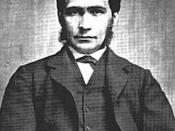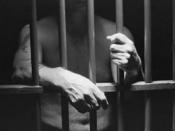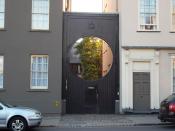Liberalism is the ideology for freedom of choice for the individual, the right to choose your own interests, desires and expectations. 'Man forms in his own mind-the inner citadel where, if anywhere, the individual must rule' (Hobhouse 1964: 19). 'A liberal man is a man who believes in liberty' (Cranston 1967: 459). This paper will briefly explain the differences between negative liberty, and positive liberty, and how liberty has changed today from the original association of classical liberty.
Early philosophy of liberty was known as classical liberalism had, strong beliefs in utilitarianism, that is which we find agreeable we term good and what we find disagreeable we term bad. Classical liberalism was first theorised by classical liberal thinkers such as David Hume, Jeremy Bentham, and James Mill in the period of 1730 - 1830. It's often seen as being the natural ideology of the industral revolution and the subsequent capitalist system.
Ideas such as freedom of speech, freedom of religon,and freedom of thought were high priorities. State actions are limited to"negative" rights (liberty rights), or freedoms from interference with liberty, specifically in assault, coercion, fraud and broken contracts. Respect for property with the ownership of self, possessions and free disposal of self was paramount in encouraging human flourishing.
Classical liberalism had implications on such things as opposition to social welfare state in favor, in effect, of laissez faire " let things alone, let them pass" 'the theory of laissez-faire assumed that the state would hold the ring' (Hobhouse 1964: 49). Two significant implications are that the state may not use its coercive apparatus for the purpose of requiring some citizens to aid others; or in order to prohibit individuals from certain activities for their own good or protection. Each person was responsible for his/her own welfare with no positive duties...


